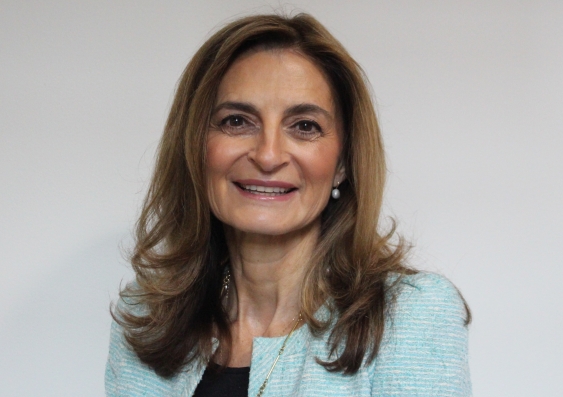Food wastage problem needs to be addressed urgently, say experts
2024-06-07T08:26:00+10:00

AI-generated image of metallic trash can with leftover food
Adobe Stock
Two ╣·├±▓╩Ų▒ experts have called on industry and consumers to do more to prevent high levels of waste in the food supply chain.
Urgent changes are needed to solve the increasing problem of lost and wasted food, according to ╣·├±▓╩Ų▒ experts.
┤Ī╠²┬Āhighlighted the fact that more than 7.5m tonnes of food is wasted in this country each year, costing households in excess of $19 billion.
That is in addition to figures from the UN Food and Agriculture Organisation which say┬Ā.
Professor Johannes le Coutre, who is responsible for the ╣·├±▓╩Ų▒ Food program, says the food industry needs to do more to reduce waste ŌĆō but he also urges consumers to be more mindful of throwing away perfectly good food.
ŌĆ£This is a problem that needs to be addressed. There is no doubt about it,ŌĆØ said Prof. le Coutre during an appearance on ╣·├±▓╩Ų▒ŌĆÖs Engineering the Future podcast series.
ŌĆ£We are indeed wasting 30 per cent of our food. And this is something that's happening all over the value chain and all over the food system. In the agricultural pursuit of food, material is wasted, certainly in the food processing and in the industrial ways of making food available for procurement, material is wasted.
ŌĆ£But we also have to look in the mirror at home. Everybody is wasting food. I make this blunt statement, and we need to address this at all levels.ŌĆØ
Media enquiries
For enquiries about this story and interview requests please contact┬ĀNeil Martin, News & Content Coordinator.
ĘĪ│Š▓╣Š▒▒¶:╠²n.martin@unsw.edu.au
Food security
Prof. le Coutre mentioned the efforts of Ronni Kahn, founder of┬Ā┬ĀŌĆō AustraliaŌĆÖs leading food rescue organisation, which prevents surplus food ending up in landfill and instead delivers to charities that help feed people in need. ŌĆ£Ronni continues to make a fantastic effort to stop food waste at all levels,ŌĆØ the academic from the┬ĀSchool of Chemical Engineering╠²▓╣╗Õ╗Õ▒╗Õ.
Similarly, local grass roots organisations such as┬ĀŌĆÖs War on Waste provide food, otherwise wasted, to people experiencing food insecurity: people living with severe mental illness, unemployment, refugees and the homeless.
But Prof. le Coutre says more needs to be done by everybody in society given the huge levels of wastage, not least in the current economic climate where the cost of living continues to surge, and more and more people are struggling to be able to afford food.
Joining Prof. le Coutre on the Engineering the Future of Food podcast episode is┬Ā╣·├±▓╩Ų▒ Conjoint┬ĀProfessor Katherine Samaras, a specialist physician and translational clinical scientist in endocrinology and metabolism.
In addition to her conjoint appointment, she is a senior staff specialist at St Vincent's Hospital, and leads the Clinical Obesity, Nutrition and Adipose Biology Laboratory at the Garvan Institute of Medical Research.
Prof. Samaras agrees that food wastage is a worrying problem that needs to be addressed across the whole of society.
ŌĆ£Yes, there are restaurateurs who will give their leftover food to charities and so forth, but we are really lacking the kind of leadership we need to have a societal level reduction in food wastage,ŌĆØ she said.
ŌĆ£As an example, very recently the news featured a young farmer who had a huge harvest of pumpkins that were too small for one of the major supermarket chains. So, they sent them back.
ŌĆ£What was he going to do, plough them into the ground? What are his distribution networks? What are the alternatives? We need economic pathways for food that is imperfect, for food that is too small or blemished.
ŌĆ£We have to stop the kind of food wastage where supermarkets dictate consumer expectations of a perfect-looking and likely expensive pumpkin or avocado. We have to stop ploughing these foods into the ground.ŌĆØ
Simultaneous hunger and obesity
During the podcast episode, as well as discussing future food solutions, such as alternative forms of protein like insects, algae and lab-grown meat, Prof. le Coutre and Prof. Samaras also highlight a current paradox ŌĆō that within the same small regions there can often be problems with obesity as equally as problems with hunger.
ŌĆ£What concerns me is that there are people who just cannot get enough food today. And in other countries, some people are drowning in over-nutrition,ŌĆØ Prof. Samaras said.
ŌĆ£Medical practitioners, allied health professionals, we're all, at an individual level, trying to address what are societal, national and global issues around the disparity of food distribution. And underlying this are the economic financial factors that actually drive that disparity.
ŌĆ£There is enough food to feed the world. But people in high Gross Domestic Product nations seem to have all the access. In comparison, there are people in lower GDP nations, and even though they are often resource-rich, they have no buying power in the international markets to access food."
Prof. le Coutre added that simultaneous hunger and over-nutrition is not unique to developing nations, but can be noticed quite easily in and around Australia.
ŌĆ£We do have under-nutrition and hunger and obesity often at the same time in the same geography, which is a problem,ŌĆØ he said.
ŌĆ£The challenge for the future will be to address this by providing healthy food for everybody and to enable, as well, the purchasing power. We need to make sure that the United Nations Sustainability Development Goal 1, 'No Poverty', goes together with Sustainability Development Goal 2, 'Zero Hunger', so that there's enough purchasing power in societies so that everybody can provide him or herself with food.ŌĆØ
*╠²Professor Johannes le Coutre and Professor Katherine Samaras were in conversation as part of the┬ĀEngineering the Future Podcast series.







